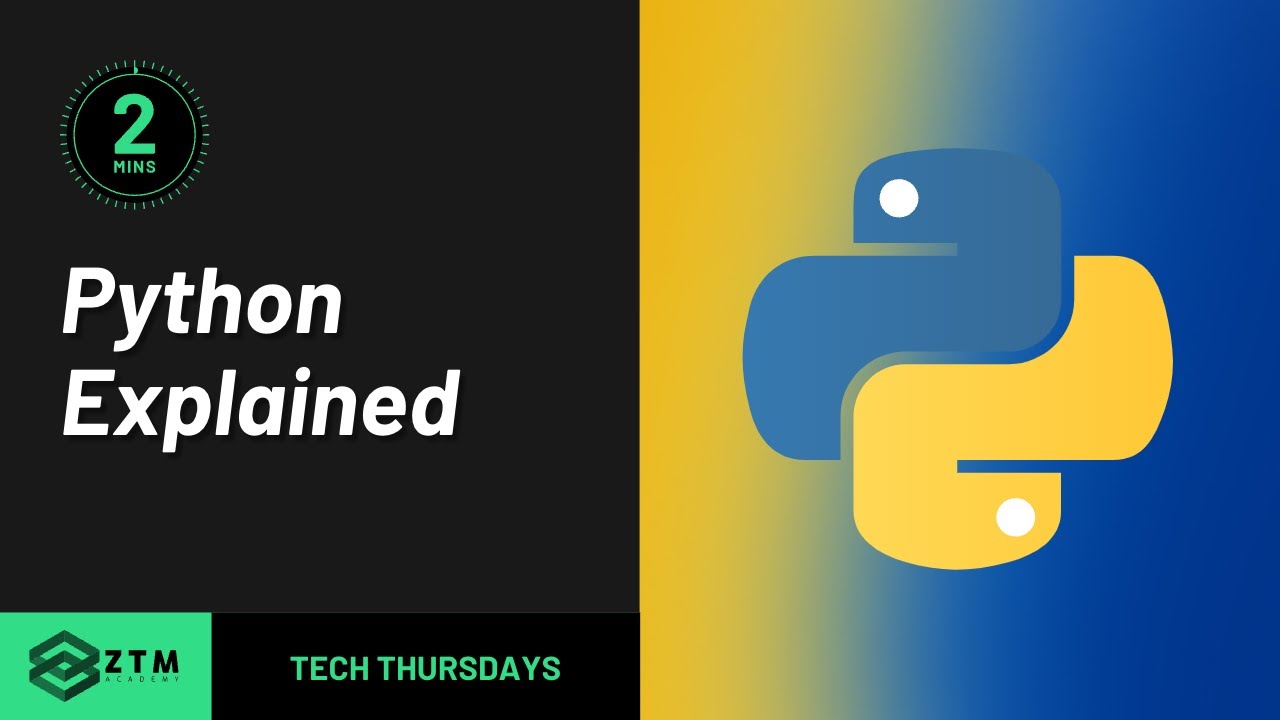History of Python | Python Tutorials for Beginners #lec2
Summary
TLDRThis video delves into the history of Python, a popular programming language created by Dutch programmer Guido van Rossum in 1989. Initially developed as a hobby, Python was inspired by the ABC language and modular concepts, emphasizing readability and simplicity. Named after the British comedy series 'Monty Python's Flying Circus,' Python has evolved through various versions, with the latest being 3.10, set to be succeeded by 3.11 in 2022. The language's open-source nature has fostered a community-driven development, continually enhancing its capabilities for diverse applications.
Takeaways
- 🐍 The creator of Python is Dutch programmer Guido van Rossum, who began working on the language in 1989 during his Christmas holidays.
- 🎨 Python was initially designed as a successor to the ABC programming language, incorporating and improving upon its features.
- 🎬 Guido van Rossum was inspired to name the language 'Python' after the British comedy series 'Monty Python's Flying Circus', which he enjoyed.
- 🛠️ Python's design was influenced by the ABC language and the exception handling concept from the Modula language, but not Java, as Python's conception predates Java's.
- 📅 The first version of Python, 0.9.0, was released in 1991, featuring classes, inheritance, exception handling, and basic data types.
- 🌐 Python was kept as an open-source project to encourage community contributions and improvements to the language.
- 📈 Python's development has seen numerous updates, with version 2.0 released in 2000 and subsequent versions up to 2.7 in 2010.
- 🚫 Support for Python 2.x was officially ended on January 1, 2020, with the focus shifting to Python 3.x versions.
- 🆕 The latest version of Python mentioned in the script is 3.10, released in 2021, with 3.11 expected to be released in October 2022.
- 💻 The script promises to guide viewers on how to install and set up Python for programming in future videos.
- 🔮 Guido van Rossum, the designer of Python, is still alive and resides in the Netherlands.
Q & A
What is the main topic of this video script?
-The main topic of this video script is the history of the Python programming language.
What programming language features and applications were discussed in the previous video?
-In the previous video, features of Python that contribute to its popularity and the various application areas where Python is used were discussed.
Who is credited with the creation of Python?
-Python was created by a Dutch programmer named Guido van Rossum.
What was the project Guido van Rossum was working on when he started Python?
-Guido van Rossum was working on a distributed operating system called Amoeba when he started Python.
What programming language did Guido van Rossum work on prior to Python?
-Prior to Python, Guido van Rossum worked on the ABC programming language.
Why was Python named as such?
-Python was named after the British TV series 'Monty Python's Flying Circus' because Guido van Rossum was a fan of the show.
What year did Guido van Rossum start working on Python?
-Guido van Rossum started working on Python in 1989.
Is Python inspired by Java?
-No, Python was designed before Java, and it is not inspired by Java. It was inspired by the ABC programming language and the exception handling concept from the Modula language.
When was the first official version of Python released?
-The first official version of Python, version 1.0, was released in 1991.
What is the latest version of Python mentioned in the script?
-The latest version of Python mentioned in the script is 3.10, released in 2021.
What was the year when support for Python 2.x was announced to end?
-Support for Python 2.x was announced to end on January 1, 2020.
Outlines

This section is available to paid users only. Please upgrade to access this part.
Upgrade NowMindmap

This section is available to paid users only. Please upgrade to access this part.
Upgrade NowKeywords

This section is available to paid users only. Please upgrade to access this part.
Upgrade NowHighlights

This section is available to paid users only. Please upgrade to access this part.
Upgrade NowTranscripts

This section is available to paid users only. Please upgrade to access this part.
Upgrade NowBrowse More Related Video

Belajar Python [Dasar] - 01 - Apa Itu Python

Curso Python #02 - Para que serve o Python?

Guido van Rossum: The TRUE History Behind The Python Programming Language

What is Python? | Python Explained in 2 Minutes For BEGINNERS.

The Story of Python, by Its Creator, Guido van Rossum

Learn Python Programming: Topic 1
5.0 / 5 (0 votes)